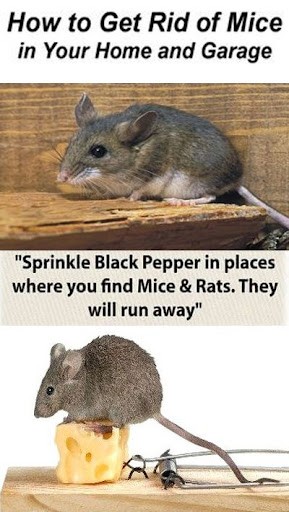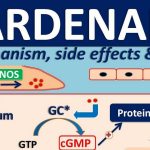
What’s the Fastest Way to Get Rid of Mice?
Effective control of mice infestation involves prevention and population reduction. Preventive measures include sanitation and exclusion. Mice are troublesome pests that destroy stored grains and carry diseases, such as the bubonic plague and leptospirosis.
1. Traps:
Trapping is an effective method for smaller infestations. Place traps strategically in locations with mouse activity.
Advantages of trapping:
- Eliminates or restricts the use of hazardous rodenticides
- Allows for disposing of trapped mice, eliminating odors caused by rodenticides
There are two types of traps: snap traps and electrocution traps.
- Snap traps: Use wooden or plastic snap traps, or multiple-capture live traps
- Electrocution traps: Battery-operated traps that kill mice quickly
2. Glue boards:
Sticky pads that catch mice when they try to cross them. Available at grocery stores and retail outlets.
3. Baits:
Mix food, such as peanut butter or cheese, with rat poison (rodenticides). Mice are attracted to the poisonous food and die after consuming it.
Rodenticides include:
- Warfarin
- Chlorophacinone
- Diphacinone
- Bromethalin
- Cholecalciferol
- Zinc phosphide
Read the label carefully and provide bait for at least 10 or 15 days. Anticoagulants usually take 2-6 days to kill mice.
4. Sanitation:
Keep the home and kitchen clean and clutter-free to discourage mice from staying. Seal snacks and pet food tightly.
5. Exclusion:
Blocking possible entry points is the most permanent form of mouse control. Seal cracks and openings larger than 1/4 inch with metal or concrete. Ensure doors, windows, and screens fit tightly.
If these measures are not effective, consider contacting a professional pest control service.
How common is leptospirosis?
Leptospirosis is more common in poor sanitary conditions and tropical regions prone to flooding. People at risk include those who live in urban slums, work with animals, or engage in recreational activities in contaminated waters.
QUESTION
What are the symptoms of leptospirosis?
Most infections of leptospirosis are mild or asymptomatic. Common symptoms include:
It is important to consult a doctor if you suspect exposure to leptospirosis, as these symptoms can be caused by other diseases. Severe leptospirosis can lead to organ dysfunction, such as liver and kidney failure.
What causes leptospirosis?
Humans contract leptospirosis through exposure to the urine of infected animals, especially rats and farm animals. Leptospirosis is common in temperate or tropical climates and is an occupational hazard for those who work with animals or outdoors.
It can also be transmitted through recreational activities in contaminated waters, especially during temporary climate conditions like flooding.
When to see a doctor for leptospirosis
If you experience symptoms and have been in high-risk areas for contracting leptospirosis, seek medical attention. A doctor can confirm the diagnosis and prescribe appropriate treatment, including antibiotics.
How is leptospirosis diagnosed?
A doctor will need to perform tests, such as examining blood samples for antibodies, to confirm a leptospirosis diagnosis. Symptoms are similar to other diseases like the flu or meningitis.
How is leptospirosis treated?
Treatment
Most cases of leptospirosis resolve on their own. However, early detection and treatment are important to prevent the disease from progressing. Antibiotics, such as penicillin or doxycycline, are used to treat leptospirosis.
Prevention
To prevent leptospirosis, limit exposure in areas where the disease is found. Avoid handling sick animals or coming into contact with their urine. Take precautions during recreational water sports and wear protective equipment for outdoor work.
By clicking Submit, I agree to the MedicineNet’s Terms & Conditions & Privacy Policy and understand that I may opt out of MedicineNet’s subscriptions at any time.
Sources:
Timm RM. How to Manage Pests (House Mouse). Statewide Integrated Pest Management Program, University of California. http://ipm.ucanr.edu/PMG/PESTNOTES/pn7483.html
Centers for Disease Control and Prevention: "Hurricanes, Floods and Leptospirosis."
Centers for Disease Control and Prevention: "Leptospirosis."
Centers for Disease Control and Prevention: "Leptospirosis Treatment."
Current Topics in Microbiology and Immunology: "Leptospirosis in Humans."
World Health Organization: "Leptospirosis."


